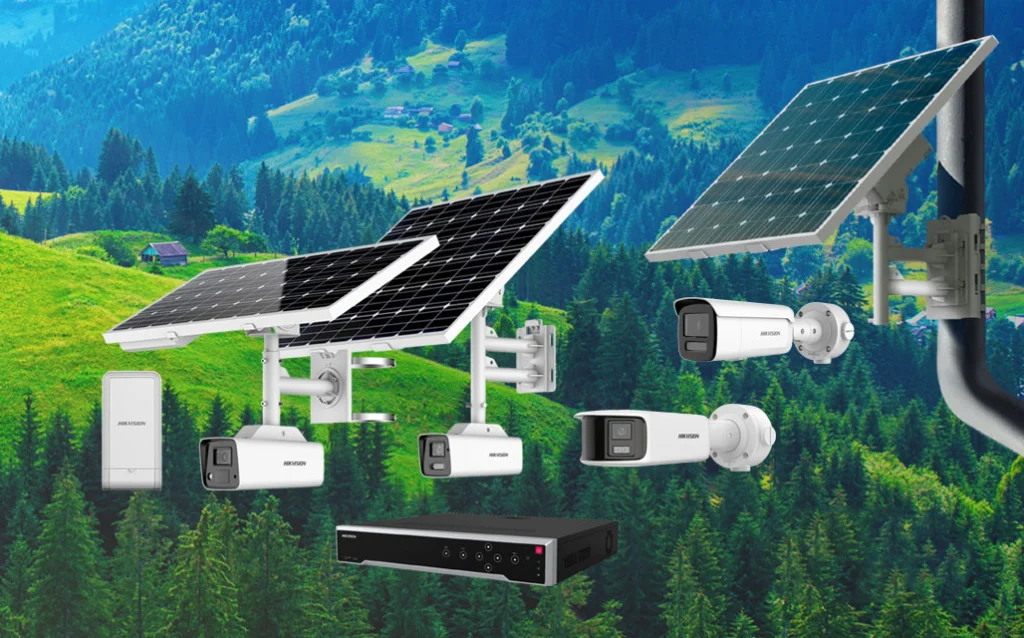
Green CCTV: Energy‑Efficient & Solar-Powered CCTV Systems
As technology continues to evolve, the demand for more sustainable and environmentally friendly surveillance solutions has grown significantly. Traditional CCTV systems, while effective for security purposes, often consume large amounts of electricity and are dependent on wired infrastructure. In contrast, Green CCTV systems—particularly energy-efficient and solar-powered CCTV models—are emerging as smarter, eco-friendly alternatives. These systems not only reduce environmental impact but also offer practical advantages in areas where conventional power sources are limited or unreliable.
In this article, we’ll explore what Green CCTV means, how solar-powered CCTV systems work, their key benefits, use cases, and what to consider when choosing an energy-efficient surveillance solution.
What Is Green CCTV?
“Green CCTV” refers to surveillance camera systems that are designed with environmental sustainability in mind. These systems use less energy, minimize carbon emissions, and often integrate renewable energy sources like solar power. The goal is to deliver robust security monitoring without compromising the health of our planet.
Energy-efficient CCTV systems are built using low-power electronics, advanced sensors, and optimized firmware to consume minimal energy. When paired with solar panels, these systems become self-sustaining, operating independently of the electrical grid.
How Solar-Powered CCTV Systems Work
A solar-powered CCTV system typically includes the following components:
-
Solar Panel – Captures sunlight and converts it into electricity.
-
Battery Pack – Stores excess energy generated during the day for use at night or during cloudy weather.
-
Energy-Efficient CCTV Camera – Designed to operate on minimal power while maintaining high-resolution video and motion detection capabilities.
-
Charge Controller – Manages power flow between the solar panel, battery, and camera to ensure stable operation and battery longevity.
-
Wireless Transmitter (optional) – Enables remote viewing and alerts via Wi-Fi or cellular networks.
Thanks to recent advancements in low-power electronics and lithium battery technology, these systems can operate continuously with minimal maintenance—even in remote or off-grid locations.
Key Benefits of Green CCTV Systems
1. Energy Savings
The primary advantage of Green CCTV systems is their low energy consumption. Traditional surveillance systems may run 24/7 and rely heavily on grid power. Green systems optimize power usage by using energy-saving components, motion-activated recording, and efficient data transmission protocols.
2. Eco-Friendly Operation
By harnessing solar power, Green CCTV systems reduce reliance on fossil fuels. They emit zero greenhouse gases during operation, contributing to cleaner air and a healthier environment. This aligns with global efforts toward carbon neutrality and environmental responsibility.
3. Remote and Off-Grid Use
Solar-powered CCTV systems are ideal for rural, agricultural, or construction sites where power infrastructure is unavailable or unreliable. As long as there is sufficient sunlight, these systems can provide uninterrupted surveillance.
4. Cost-Effective Over Time
While the initial cost of a solar-powered system might be higher than conventional setups, it pays off over time through reduced electricity bills and lower maintenance costs. There’s also no need for extensive wiring or trenching, which further cuts installation expenses.
5. Flexible Deployment
Green CCTV units are often wireless and modular, allowing for easy relocation and installation in diverse environments—from parking lots and public parks to wildlife monitoring stations and disaster recovery zones.
Popular Use Cases for Green CCTV
-
Construction Sites: Monitor equipment and prevent theft without relying on temporary grid connections.
-
Farms and Ranches: Keep an eye on livestock, crops, and perimeter areas where wired systems are impractical.
-
Wildlife Monitoring: Observe animals in natural habitats with minimal environmental disturbance.
-
Public Parks and Trails: Ensure visitor safety while preserving natural aesthetics and reducing infrastructure costs.
-
Remote Roads and Highways: Improve traffic safety and response time in remote areas.
What to Consider When Choosing a Green CCTV System
Before investing in an energy-efficient or solar-powered surveillance system, consider the following factors:
-
Sunlight Availability: Assess average sun exposure in the installation area. Locations with frequent cloud cover may require larger panels or backup energy sources.
-
Camera Power Requirements: Choose cameras with low power consumption features, such as efficient night vision, motion detection, and smart recording.
-
Battery Capacity: Opt for systems with high-quality batteries that can store enough energy for continuous operation during low-sunlight days.
-
Connectivity Options: Decide between Wi-Fi, 4G/LTE, or local storage depending on your site’s internet availability.
-
Durability and Weather Resistance: Make sure the equipment is weatherproof (IP66 or higher), especially for outdoor installations.
The Future of Surveillance Is Green
With rising energy costs and growing environmental concerns, the shift toward Green CCTV solutions is not just a trend—it’s a necessity. Solar-powered and energy-efficient systems offer a perfect blend of security, sustainability, and cost-effectiveness. Whether you’re securing a remote farm or upgrading urban surveillance, going green with your CCTV setup is a smart investment in both technology and the planet.
As the technology improves, we can expect even more efficient components, smarter energy management, and integrated AI features to enhance performance while preserving resources.
Final Thoughts
Green CCTV systems represent the future of surveillance—clean, efficient, and reliable. For homeowners, business owners, and governments alike, investing in solar-powered and energy-saving CCTV technologies is a step toward a safer and more sustainable world.
If you’re planning your next surveillance project, consider going green. It’s not just good for the environment—it’s good for your bottom line.
